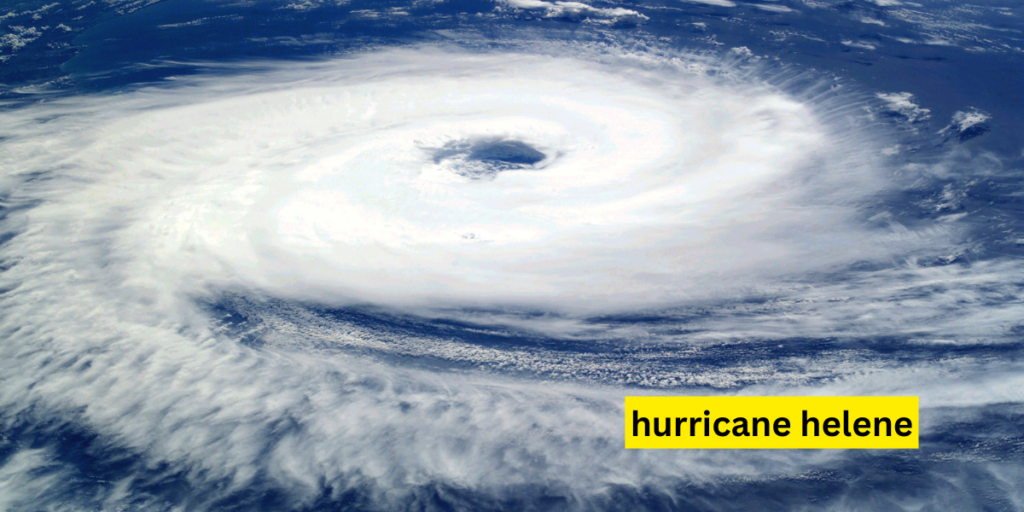As Hurricane Helene churns ominously through the Atlantic, residents along the East Coast are bracing for impact while government agencies spring into action. With winds threatening to unleash their fury and rainfall poised to inundate communities, the U.S. government’s response is a critical lifeline for those in harm’s way. In this blog post, we’ll delve into how federal, state, and local resources are being mobilized—transforming chaos into coordinated efforts aimed at swift disaster recovery. From emergency shelters to rapid-response teams on standby, discover how resilience takes shape when nature strikes and what it truly means to come together in times of crisis. Join us as we explore the intricate web of preparation that aims not just to weather the storm but also pave a path toward recovery and rebuilding in Helene’s aftermath!
Introduction to Hurricane Helene
Hurricane Helene has made its mark, leaving communities grappling with its aftermath. As the winds have calmed and the skies cleared, attention has shifted to recovery efforts across affected regions. The impact of such a powerful storm can be devastating, but the resilience of individuals and organizations shines through in times like these. The U.S. government plays a crucial role in mobilizing resources and support for disaster recovery, ensuring that those impacted by Hurricane Helene receive help when they need it most. Let’s explore how this collaboration unfolds and what steps are being taken to aid recovery from this fierce storm.
Overview of the US Government’s Role in Disaster Recovery
The US government plays a pivotal role in disaster recovery, especially during crises like Hurricane Helene. Agencies such as FEMA (Federal Emergency Management Agency) step in to coordinate resources and support local efforts.
From the onset of the hurricane, federal officials assess damage and deploy teams to affected areas. They work alongside state agencies to ensure swift response measures are implemented. This collaboration is vital for effective communication and coordination.
Financial assistance programs are established to help individuals and businesses rebuild their lives. The government provides grants, low-interest loans, and other forms of aid tailored to specific needs.
Moreover, public health initiatives come into play following disasters. Ensuring safety from potential hazards is crucial as communities begin their recovery journey. Through these comprehensive strategies, the US government aims to minimize suffering while fostering resilience among affected populations.
Emergency Response Strategies and Resources
Emergency response strategies for Hurricane Helene are crucial in minimizing damage and ensuring safety. The Federal Emergency Management Agency (FEMA) plays a vital role. They coordinate efforts with local agencies to deploy resources effectively.
First responders, including police and firefighters, work tirelessly to assist affected residents. They focus on search and rescue operations immediately after the storm makes landfall.
Shelters become operational quickly, providing safe havens for those displaced by flooding or destruction. Local community centers often transform into emergency hubs where people can find food, water, and medical aid.
The National Guard may also be mobilized to support recovery efforts. Their presence helps maintain order and provides logistical assistance during chaotic situations.
Public communication is another critical aspect of response strategies. Social media platforms serve as tools for updates on weather conditions and safety information. This helps ensure that individuals remain informed throughout the recovery process.
Long-Term Recovery Efforts and Programs
Long-term recovery after Hurricane Helene involves a multi-faceted approach. The government works alongside local agencies to assess damage and prioritize needs.
Programs like FEMA’s Public Assistance provide funding for rebuilding infrastructure. This investment helps communities restore essential services quickly.
Individual assistance programs focus on families affected by the hurricane. Grants can help cover temporary housing, home repairs, and other essential expenses.
Nonprofits play a vital role as well. Organizations mobilize volunteers and resources to support those in need, fostering community resilience.
Workshops are often held to educate residents about available resources and financial planning. Knowledge is key in navigating the complexities of recovery.
Mental health services are also crucial during this time. Accessing counseling can aid individuals coping with trauma from natural disasters.
As communities rebuild, they strengthen not only structures but also their social fabric through collaboration and shared experiences.
Tips for Individuals and Businesses Affected by Hurricane Helene
Stay informed by monitoring local news and weather updates. Knowledge is power during recovery.
If you’ve suffered property damage, document everything. Take photos and keep receipts for repairs. This information will be crucial for insurance claims.
Reach out to your insurance provider as soon as possible. Understand your coverage and the steps necessary to file a claim efficiently.
Connect with local relief organizations for assistance with immediate needs like food, shelter, or clothing. They can provide valuable resources while you navigate the recovery process.
For businesses, assess your operational capacity quickly. Determine how much inventory was lost and what financial impacts you’ll face.
Consider temporary solutions like remote work arrangements if applicable. This allows operations to continue even when physical locations are compromised.
Engage with fellow business owners in your area for support and collaboration opportunities. Sharing resources can help everyone bounce back more effectively after Hurricane Helene strikes.
Community Support and Volunteer Opportunities
Community support plays a vital role in recovery after Hurricane Helene. Many organizations are mobilizing volunteers to provide essential services and aid.
Local shelters need help with staffing, food distribution, and clean-up efforts. Even small acts of kindness can make a significant impact on those affected by the storm.
If you’re looking to contribute, consider joining local groups or disaster relief organizations. They often have structured programs that match volunteers with specific needs.
Donating supplies is another way to show support. Items like bottled water, non-perishable foods, clothing, and hygiene products are always needed in disaster-stricken areas.
Don’t underestimate the power of your presence. Sometimes just lending an ear or offering companionship can uplift someone’s spirits during tough times.
Engagement fosters resilience within communities as they rebuild together after challenges like Hurricane Helene’s devastation.
Conclusion: Moving Forward After Hurricane Helene
As communities begin to recover from Hurricane Helene, the focus shifts toward rebuilding and healing. The impact of such a disaster can be immense, but resilience is often born from adversity. Individuals and families are encouraged to lean on support networks—friends, family, and community organizations.
The journey ahead will require collaboration between residents and government agencies. It’s essential for everyone affected by Hurricane Helene to stay informed about available resources. Through continued communication with local authorities, you can access assistance programs that cater specifically to your needs.
Engagement in community discussions not only fosters unity but also empowers those directly impacted by the hurricane. Sharing experiences helps others understand the challenges faced while creating a collective voice for future improvements in disaster preparedness.
Look out for volunteer opportunities that allow you to give back or lend a hand where it’s needed most. Participation can be incredibly rewarding as it creates connections among neighbors working towards a common goal: recovery.
As time progresses after Hurricane Helene, remember that healing may take time—but with determination and cooperation, brighter days are ahead.






